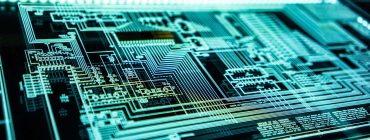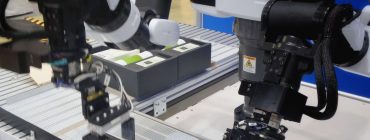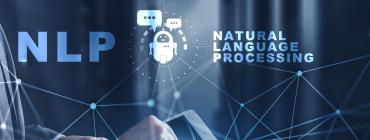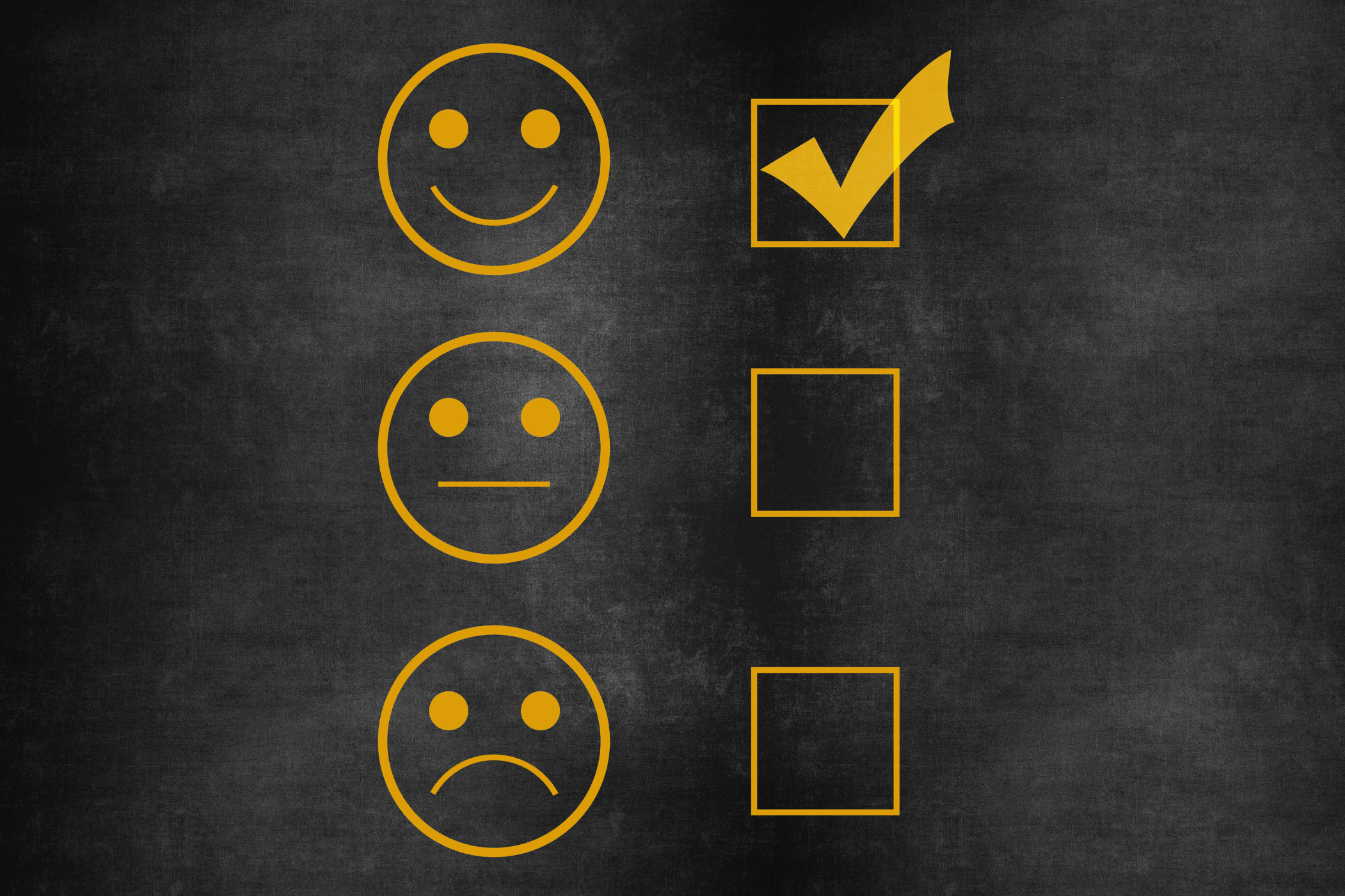Digital Process Automation with RPA + AI
Our organization is dedicated to providing Digital Process Automation (DPA) services, which are powered by the latest technologies in Robotic Process Automation (RPA) and AI Assistants. We strive to revolutionize the way businesses operate by enabling seamless collaboration between human workers and intelligent machines. We facilitate the use of software bots, which serve as efficient proxies for human-led processes and data transactions. These bots are designed to perform repetitive tasks with unparalleled speed, precision, and consistency, enabling human workers to focus on more complex tasks. Our DPA services are tailored to the unique needs of your organization, offering a flexible augmentation of your current workforce with the latest automation technologies. By leveraging the power of RPA and AI, we can help your organization to streamline its operations for the future.
The future is happening now
Robotic Process Automation (RPA) is a state-of-the-art technology that uses software robots or “bots” to automate repetitive, rule-based tasks in business processes. These bots are programmed to perform tasks just like a human user would while interacting with digital systems, applications, and data. The main objective of RPA is to improve operational efficiency, minimize errors, and relieve human resources from monotonous, routine tasks.
AI Agents are digital entities powered by Artificial Intelligence (AI), which can assist and automate various tasks. These intelligent systems are designed to understand and respond to natural language, making them valuable aids in improving efficiency, productivity, and user experience. AI Agents are technological companions that are created to enhance human capabilities and improve overall business performance through intelligent automation and interactive support.
Key RPA Benefits
Experience how the transfer of workloads to an automated digital employee can spark greater performance and agility across all business functions.
In today’s fast-paced digital world, integrating RPA into your business operations is essential to stay ahead of the curve. Not only does it expedite your digital transformation journey, but it also amplifies your team’s productivity through automation. By embracing RPA, you can pave the way for a cost-effective future for your company, streamlining your processes and driving an increase in efficiency and effectiveness.

Uncover speed and other efficiencies by streamlining all your manual, repetitive, and labour-intensive operations to intelligent bots.

With minimal human input, keep your business going 24/7 with a smart assistant capable of ramping up workload according to demand spikes.

Program your Bots to work within your defined rules - ensuring error-free results backed up by an Audit trail for precise analytics.

When bots take over, you can free up your employee’s workload by reallocating focus on profit-producing tasks – minimizing costs while maximizing productivity.

Integrate seamlessly with existing IT infrastructure, working alongside legacy systems and applications without significant system upgrades.

Provides detail audit trails, enhancing transparency and aiding compliance with regulatory requirements.
Key AI Benefits

Our AI entities are infused with cognitive capabilities, enabling them to understand, interpret, and learn from data, and adapt to evolving business requirements.

With our NLP-enabled solutions, communicating with AI agents is simple and effortless. With our technology, we make technology more accessible to users, ensuring a seamless interaction that enhances the user experience.

Ensuring that the data used to make decisions is accurate, complete, and reliable is crucial. Like chefs need high-quality ingredients to create a delicious dish, businesses need good data to make informed decisions.

AI agents can analyze large datasets to draw meaningful conclusions. Utilize data-driven decision-making to guide your business to success.

AI Assistants continuously learn from interactions and data, evolving over time to adapt to changing business dynamics and user needs.

Improve customer exprience with AI-powered assistants that can handle customer queries, provide information, and offer support in real-time.
KEY SOLUTIONS
Attended robots are a type of RPA that work together with humans to automate certain tasks that require human decision-making or intervention. These robots usually operate on the user's desktop or within their environment and are initiated by humans when needed. The goal is to collaborate with employees to increase productivity and enhance their work experience.
Unattended robots in RPA are designed to operate independently, without direct human oversight. These robots are typically deployed on servers or virtual machines and execute predefined tasks autonomously. Lo-Key configures them to interact with your business applications, handling end-to-end processes and back-office tasks at scale.
Hybrid RPA strategically integrates both attended and unattended automation within a business's robotic process automation ecosystem. This approach leverages the strengths of each type of automation to create a more versatile and comprehensive solution for optimizing business processes.
Our bespoke AI Agents are designed to focus on a specific knowledge base domain to increase the speed and agility of disseminating information across teams, answer queries to serve as reference points for procedural guidance and governance while continously learning and adapting to user preferences over time.
Introducing a highly advanced AI agent that is tailored to offer interactive and contextual support to work alongside your newly recruited team members. This AI assistant enables newly onboarded staff to engage in natural conversations with the agent, and can be customized to meet your unique requirements. This approach has diverse use cases and can be adapted to suit your specific needs.
The infusion of Artificial Intelligence (AI) capabilities with Robotic Process Automation (RPA) in a hybrid approach presents unparalleled possibilities for reshaping work processes. These emerging technologies can significantly enhance job satisfaction and amplify productivity levels. By carefully considering the specific requirements of your business, the implementation of this approach can revolutionize your operations..
LO-KEY DPA PROCESS
Lo-Key Solutions leverages a development framework that combines tech expertise, proven processes, and agile methodologies to achieve digital transformation success.
Streamline business operations, reduce production costs, and harness data – all with Lo-Key Solution’s RPA services.
Find quick answers to frequently asked questions by customers
Robotic Process Automation (RPA) is a critical aspect of digital transformation that aims to enhance your business efficiency, provide insightful analytics, and optimize work processes. RPA operates as digital software bots and helps streamline operations, ensuring quality assurance while reducing costs. It’s important to note that RPA involves software bots, not physical robots like Humanoid Robots, drones, or autonomous vehicles. These bots perform tasks with exceptional accuracy, minimizing errors and elevating data quality and process reliability for a more streamlined operation.
With RPA, you can teach a computer to mimic your actions on the screen and perform repetitive tasks independently or in concert with a human. These bots act as digital employees and can be trained to follow a set of instructions to interact with computer applications, just like you would with a mouse and keyboard. Imagine the time you could save with this advanced technology. Say goodbye to tedious tasks and hello to increased productivity.
By equipping your workforce with Robotic Process Automation (RPA) solutions that are tailored to your business operations, you can significantly boost productivity and enhance your company’s value and capacity for innovation, thereby providing digital agility. This would allow knowledge workers to have more time to exercise their creativity in the workplace. RPA is designed to work in harmony with your business rules and internal governance and can handle both structured and unstructured data. Since robots are faster than humans, automating with RPA can result in a significant increase in output while eliminating errors, ensuring consistency, and speeding up service delivery times. This can lead to greater insights and overall improved performance.
The landscape of information technology constantly creates new terms and evolves the meanings of older ones. This includes BPA (Business Process Automation) and RPA (Robotic Process Automation).
Let’s explore the differences:
Business Process Automation (BPA):
BPA is not a new idea. It has been around since the second industrial revolution. At first, it was used for mass production. Over time, BPA has evolved and is now an essential part of BPM (Business Process Management). BPA is crucial for managing operations by automating routine tasks. This helps to make the best use of human resources so that they are free to focus on more strategic tasks.
Robotic Process Automation (RPA):
Robotic Process Automation (RPA) is an advanced technology that utilizes software bots to replicate and integrate human actions in digital systems. Unlike traditional IT solutions, RPA is cost-effective and can be implemented quickly, usually within hours or days. This technology is designed to comply with business governance policies and regulatory standards, and it operates through a ‘No-Code’ or ‘Low-Code’ application process. RPA can seamlessly integrate with existing applications and enterprise systems, providing an efficient solution for process optimization.
It’s important to note that the implementation timeline for RPA depends on the complexity of the chosen business process. RPA is a non-intrusive technology, which means that it can be easily integrated into existing systems without causing any disruptions.
Both GPTs and AI Assistants are tools that can be used to develop a custom ChatGPT. The primary difference lies in accessibility, with GPTs being more user-friendly for everyone, whereas AI Assistants require programming proficiency. Both these components coexist within the OpenAI environment. It is important to recognize that while GPTs offer a quick and easy creation process, their customization is limited to what OpenAI provides, which can pose limitations on interface design.
In contrast, AI Assistants provide more control, allowing for the integration of AI capabilities into business applications and websites or functioning independently as an autonomous agent, customized to specific requirements with the ability to leverage large language models and fine-tuning.